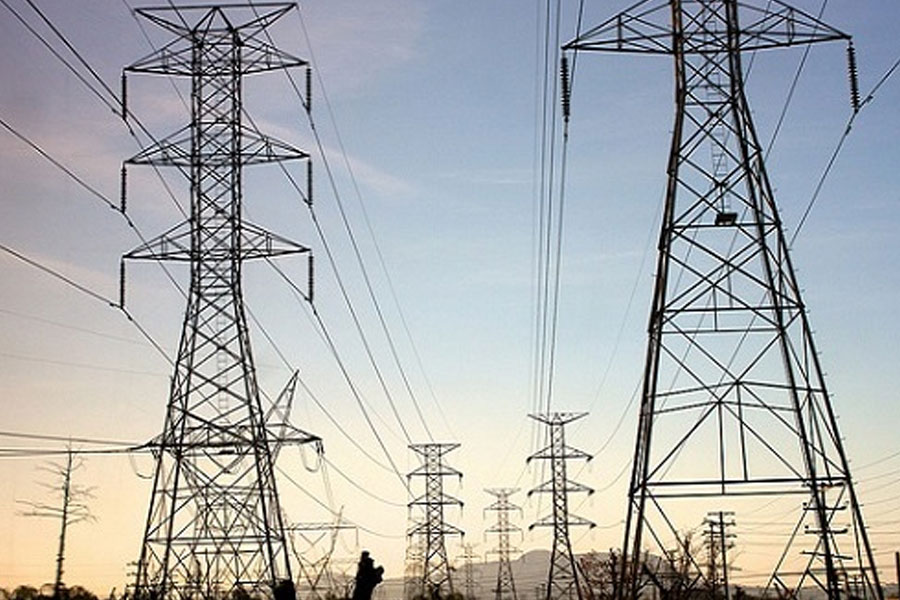
Commentaries | Feb 15,2020
The board of directors of the Commercial Bank of Ethiopia (CBE) is about to request a 17-billion-Br liquidity injection from the Ministry of Finance in the form of paying back a portion of state-owned enterprises' debt guaranteed by the Ministry.
The board is set to propose the liquidity injection, while a committee composed of members from the Ministry, the National Bank of Ethiopia, and the Public Enterprises Holding & Administration Agency is mapping out scenarios on how to restructure the accumulated debt state-owned enterprises owe the CBE.
The committee that was formed a month and a half ago has been devising a strategy to reinforce the country's financial stability. The mechanism, which proposes a partial debt write-off, debt rescheduling and making the lawmakers and Ministry's officials accountable for approving the loansand failing to follow up on the projects, is expected to soon be tabled to the macroeconomic committee, which is chaired by Prime Minister Abiy Ahmed (PhD).
CBE has outstanding loans of 400 billion Br to Ethiopian Electric Power (EEP), 120 billion Br to Ethiopian Railways Corporation, 70 billion Br to the Sugar Corporation, and an additional 70 billion Br to the Metals & Engineering Corporation (MetEC). The total value these state-owned enterprises owe CBE equals the last two years of the country's federal budget.
“We need more cash to avail loans and operate the Bank,” Tekelwold Atenafu, board chairperson of CBE, told Fortune. “But how the Ministry of Finance will source the money is still in question.”
CBE has been engaged in financing long-term projects undertaken by state-owned enterprises by investing in bonds and extending loans, drawing on its deposit base. Of the total debt stock of state-owned enterprises at the end of the last fiscal year, which amounted to 26pc of GDP, 14 percentage points are held by the CBE in the form of corporate bonds and loans.
The credit to the state-owned enterprises have expanded in line with significant growth in state-owned enterprise investment in recent years, which tightened liquidity conditions of the CBE and exacerbated the maturity mismatch. The Bank has been financing the Sugar Corporation, Ethiopian Railways Corporation, Ethiopian Electric Power and the Metals & Engineering Corporation.
In response to the crunched liquidity stance of the Bank, the central bank has availed 16 billion Br to serve depositors for withdrawal purposes but not for borrowers. CBE received the cash three weeks ago in the form of a bond that will be paid in three years with an eight percent interest rate.
The CBE’s credit exposure to the state-owned enterprise is also highly concentrated in the energy sector, accounting for about 40pc of its total asset portfolio. After the first phase of the technical committee review, soft loans that are forwarded to EEP projects have been shifted to the Ministry of Finance to reduce the loan pressure on EEP.
In the second phase, the committee is deliberating as to how to make use of the combination of three options. Increasing the tariffs of power in parallel to the global standard and administering targeted subsidies for vulnerable communities is one of the possible scenarios.
One of the issues impeding sector performance includes the tariff structure, since the cost of electricity production, transmission and distribution exceeds tariff revenue. EEP is also highly leveraged and cannot meet debt-servicing obligations due to the government using debt to fund the shortfall in tariff revenue against costs.
The second option is to share some of the debt through the Ministry of Finance as it is the liable institution for the loans. Lastly, the financier, CBE, would share the burden through debt rescheduling in a manner that threads carefully with the liquidity stance of the Bank.
In the current scenario, the combination of the Novel Coronavirus (COVID-19) spending and the approved supplementary budget has already contributed to a 145-billion-Br budget deficit, according to Alemayehu Geda (PhD), a macroeconomist.
"With the economy dwindling like this, the government looks like it's moving toward monetisation, which means taking money from NBE and falling into higher inflation," he said. "Thus, any kind of money injection will endanger the economy."
PUBLISHED ON
[ VOL
, NO
]

Commentaries | Feb 15,2020

Radar | Jun 12,2021

Radar | Jun 27,2020

Radar | Oct 09,2021

Radar | Jul 01,2023

Fortune News | Nov 26,2022

Radar | Sep 26,2021

Fortune News | May 29,2021

Radar | Aug 29,2020

Radar |

Dec 22 , 2024 . By TIZITA SHEWAFERAW
Charged with transforming colossal state-owned enterprises into modern and competitiv...

Aug 18 , 2024 . By AKSAH ITALO
Although predictable Yonas Zerihun's job in the ride-hailing service is not immune to...

Jul 28 , 2024 . By TIZITA SHEWAFERAW
Unhabitual, perhaps too many, Samuel Gebreyohannes, 38, used to occasionally enjoy a couple of beers at breakfast. However, he recently swit...

Jul 13 , 2024 . By AKSAH ITALO
Investors who rely on tractors, trucks, and field vehicles for commuting, transporting commodities, and f...

Nov 1 , 2025
The National Bank of Ethiopia (NBE) issued a statement two weeks ago that appeared to...

Oct 25 , 2025
The regulatory machinery is on overdrive. In only two years, no fewer than 35 new pro...

Oct 18 , 2025
The political establishment, notably the ruling party and its top brass, has become p...

Oct 11 , 2025
Ladislas Farago, a roving Associated Press (AP) correspondent, arrived in Ethiopia in...